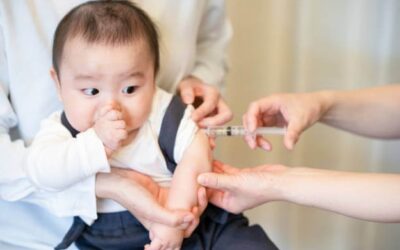By Rachel Benbrook (Hygeia-analytics.com) and Dr. Michelle Perro (GMOScience.org)
A multi-disciplinary team of psychiatrists, doctors, and epidemiologists crafted a fascinating study that looked at how adverse childhood experiences, or ACEs, impact the gut microbiome and stress response of pregnant women.
The paper on their findings, published in 2019 in the peer-reviewed journal Brain, Behavior, and Immunity provide insights on the complex role our gut bacteria play in our physical and mental health.
The original work on ACEs by Drs. Felitti et al., was a landmark study of nearly 10,000 individuals that found that negative childhood events impacted their health as adults. The higher the score, the higher the risk of serious diseases such as autoimmunity, cardiovascular disease and cancer later in life (Felitti et al., 1998).
The gut microbiome consists of all the bacteria, archaea, viruses and fungi that call the human intestinal track home, and there are very, very many of them! There are about 10 microbiota cells for every 1 human cell in our body, and we are just starting to understand how these tenants help us with digestion, detoxification, immunological well-being and many other important biologic functions.
This research team built upon previous research on rodents that had shown that the gut microbiome appears to play an important role in regulating the response to stress, in particular ACEs. They recruited around 50 pregnant women who were “physically and psychiatrically” healthy and had them complete an ACE questionnaire. These women also provided a stool sample around halfway through their pregnancy, along with accompanying 24-hour food surveys that allowed the researchers to measure nutrient intake (Hantsoo et al., 2019).

A subset of 19 women in this group also underwent a social stress test to measure their bodies inflammatory response to stress. This study design allowed researchers to look at the role of ACEs in the composition of the gut microbiota, and whether women with a poor response to stress also showed a different microbiome makeup.
The researchers found that pregnant women who said they experienced at least two adverse experiences in childhood did show changes in the microbiome composition. Additionally, “…such changes may contribute to altered inflammatory and glucocorticoid response to stress” (Hantsoo et al., 2019).
Given our interest in the role of nutrition in human health, we were very interested to read that an “exploratory analysis” of the data from 24-hour food recalls suggested that pregnant women with higher dietary intake of omega-3 polyunsaturated fatty acids (PUFAs) had a reduced inflammatory response to stress.
As we report extensively, PUFAs provide a variety of health benefits. The high intake of unhealthy, omega-6 fatty acids found in processed and fried foods and grain-fed animal products that are the main components of the Standard American Diet (SAD), is one of the biggest public health issues of our time. A simple switch to 100%, pasture-raised grass-milk and grass-fed meats can make a big difference, as a grass-fed diet shifts the omega ratio in animal products and enhances both the quantity and quality of fatty acids in the resulting foods (see much more on this here).
But, this is the first study in humans that shows a potential protective benefit to the microbiome, and given the many important roles we are learning these millions of microorganisms play, this is yet another compelling reason to choose pasture-raised meat and dairy products when possible, especially if you have kids faced with stressful situations at home (say, an unusual schooling environment?).
While diet should always be the first go-to, supplementation with PUFAs offer enhanced neurological support during pre-pregnancy, infancy and childhood. Choosing quality sources of omega 3s is paramount when supplementing a child’s diet.
Source:
Felitti, V., Anda, R., Nordenberg, D., Williamson, A, Sitz, V., Edwards, M., Koss, J., Marks; “Relationship of childhood abuse and household dysfunction to many of the leading causes of death in adults. The Adverse Childhood Experiences (ACE) Study”; American Journal of Preventitive Medicine, 1998, May;14(4):245-58. DOI: 10.1016/s0749-3797(98)00017-8.
Hantsoo, L., Jasarevic, E., Criniti, S., McGeehan, B., Tanes, C., Sammel, M. D., Elovitz, M. A., Compher, C., Wu, G., & Epperson, C. N.; “Childhood adversity impact on gut microbiota and inflammatory response to stress during pregnancy;” Brain Behavior and Immunity, 2019, 75, 240-250; DOI: 10.1016/j.bbi.2018.11.005.


